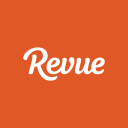How I Turned My WordPress Freelance Gigs Into A Productized Service
Hello! Who are you and what business did you start?
Hello, this is Daniele Besana and I'm the founder of WP-OK.
We provide unlimited WordPress support for serious folks, another way of saying that we help small business owners focusing on the important things while we take care of their websites.
We offer WordPress management subscription, our flagship product, that came in three different plans designed for different needs.
From taking care of security & maintenance to providing unlimited tickets for continuous websites improvements, our goal is to provide the best support for serious website owners.
I like to describe our customers as 'serious' because they all have a professional approach to their online business and are seeking the support they didn't get before.
Most of them found WP-OK after a painful experience: a do-it-yourself approach turned into hours spent fixing WordPress instead of growing the business, a freelancer who has disappeared into thin air, or a web agency charging big bucks for any small...















